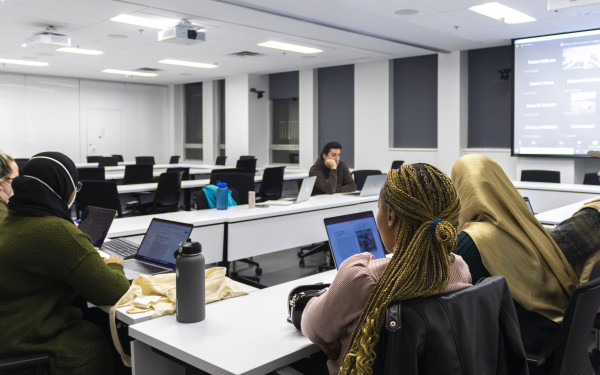Library services have improved in part to student effort
The Library Services Fund works to provide 24/7 library access to students
The Library Services Fund is one of the financial resources available at Concordia University. It aims to make access to education easier for all students, using funds provided by the student themselves via their yearly tuition fees.
The student funds are managed by the Library Services Fund Committee, in accordance with the Library Service Fund Agreement. The agreement between the Concordia Student Union and the university itself aims to provide “additional or improved library resources” at both the Vanier and Webster libraries.
Meeting three to six times a year, the committee is composed equally of students, elected representatives of the CSU, and Concordia staff members. “The student body has an agreement with the university regarding how the library operates, which is very unique because there are very few places where they’ll give us a direct say on the operation of something,” said Eduardo Malorni, the CSU General Coordinator.
The total budget comes from two places: the university’s own library budget and the $1 per credit contributed by the undergraduate students yearly. According to the LSFC Annual Report of 2020, the revenue summed up to just over one million dollars.
“I cannot stress enough how important the Library Student Fund is,” said Malorni. One of the biggest achievements by the LSFC is making it possible to have the Concordia library open to students 24/7. While the university pays for the library services from 7am until 11pm, the LSF provides the funds to cover the expenses to keep the library open from 11pm until 7am—almost $200,000 just in security and cleaning services in 2020.
The lockdown that occurred when the pandemic first hit forced the LSFC to revise the budget allocation. The committee was able to save money due to the closure of school facilities, yet they still had to determine how to best support the students during the ongoing crisis.
Prior to the pandemic, laptops and tablets were available for students to borrow at both libraries. Malorni explains want to ensure that students from any program can use the devices and run the programs required for their classes.
Quarantine and social distancing rules made it hard for students to pick up the much-needed devices for courses that were converted to online classes. A portion of the budget was consequently allocated to purchasing more emergency laptops for rental.
In addition, the LSFC organized the shipping of textbooks by mail. This was challenging, explained Malorni, as a staff member had to physically go on campus and scan the textbook section the student needed from the course reserve.
“We purchased the rights to all the textbooks for one year,” said Malorni. This eased the scanning process for the staff, as they could then scan the textbook without worrying about copyrights. Fortunately, the scanning service at the course reserve remains today. Any Concordia student can present themselves and scan the pages they need from a textbook and email them to themselves which has helped students save money.
“We need to really work at making textbooks more accessible and more affordable,” said Harrison Krishner, the CSU Internal Affairs Coordinator. Kirshner emphasized the need of finding ways to have professors transition to open-source textbooks, as it is more accessible and less costly for students.
“Knowledge should be free,” Malorni stated.
The LSFC finances grants supporting the Open Education Resources . Teachers and faculty members can apply for grants on the OER webpage—varying from $1,000 to $10,000. They are encouraged to use the funds to hire graduate students or teaching assistants to work on the creation of textbooks.
Dr. Rachel Harris, who’s in charge of the OER project at Concordia, expects to launch the new website in January 2022. This will facilitate student involvement and hopefully help in creation of more open-sourced textbooks.

_900_609_90.jpg)



__600_375_90_s_c1.jpg)

